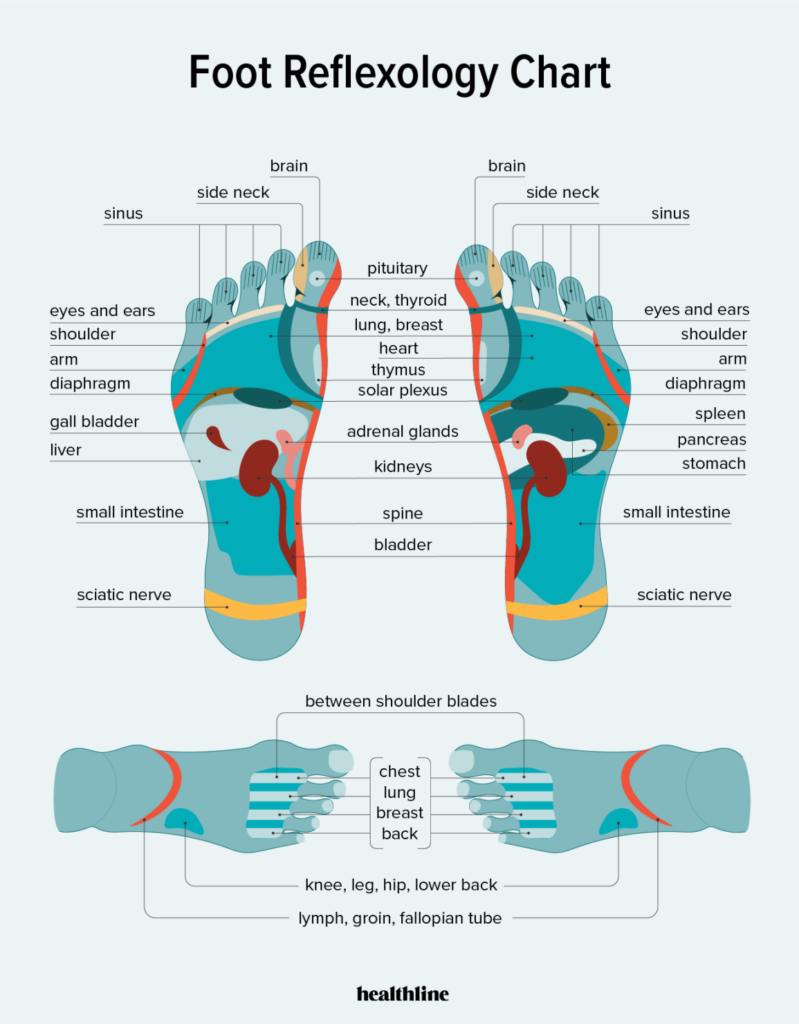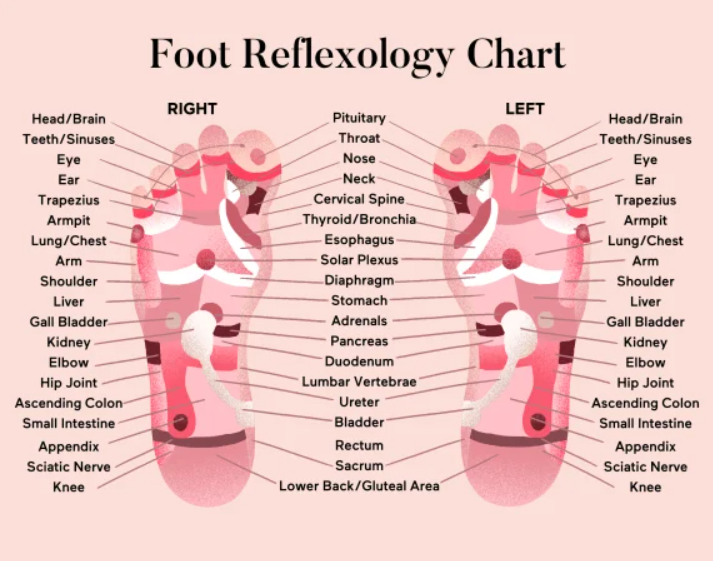In this article, you will learn about the benefits of reflexology techniques. Reflexology is a therapy that focuses on applying pressure to specific points on the feet, hands, and ears. By targeting these points, reflexology stimulates the corresponding organs and systems in the body, promoting healing and relaxation.
Reflexology techniques offer a variety of benefits for both the body and the mind. Firstly, they can help to relieve stress and promote relaxation. By applying pressure to specific points, reflexology can stimulate the release of endorphins, which are natural painkillers and mood enhancers. Additionally, reflexology techniques can improve circulation, increase energy levels, and stimulate the immune system, making them a great way to support overall health and well-being. So if you’re looking for a natural and holistic approach to optimize your health, reflexology techniques may be worth considering.
What is Reflexology?
Reflexology is a holistic therapy that involves applying pressure to specific areas on the feet, hands, or ears to promote healing and relaxation throughout the body. It is based on the principle that these areas, known as reflex points, correspond to different organs, glands, and body systems. By stimulating these reflex points, reflexology aims to improve energy flow, relieve tension, and restore balance in the body.
Definition of Reflexology
Reflexology, also known as zone therapy, is a natural healing technique that dates back thousands of years. It is rooted in the belief that the body has an innate ability to heal itself, and that by stimulating specific reflex points, the body’s self-healing mechanisms can be activated.
History of Reflexology
The origins of reflexology can be traced back to ancient civilizations such as Egypt, China, and India. Egyptians have been found to practice a form of foot massage that resembles reflexology as far back as 4,000 BC. In traditional Chinese medicine, the concept of energy channels, or meridians, in the body forms the basis for reflexology.
Reflexology as we know it today was popularized in the early 20th century by Dr. William H. FitzGerald, an American ear, nose, and throat specialist. He developed the “zone therapy” concept, which divided the body into ten vertical zones, with the hands and feet representing maps of the entire body. Eunice Ingham, a physical therapist, further refined the technique and mapped out various reflex points on the feet, creating the foundation for modern reflexology.
How Reflexology Works
Reflexology works on the principle that stimulating the reflex points on the feet, hands, or ears can have a positive impact on the corresponding organs, glands, and body systems. It is believed that through the application of pressure, blockages in the energy pathways are released, allowing energy to flow freely and restore balance.
The pressure applied during a reflexology session can vary from gentle to firm, depending on individual preferences and sensitivities. Techniques such as thumb-walking, finger pressure, and kneading are commonly used to target specific reflex points and promote relaxation and healing.
Physical Benefits of Reflexology
Reflexology offers a wide range of physical benefits that can help improve overall wellbeing and alleviate various health conditions.
Reduces stress and anxiety
One of the primary benefits of reflexology is its ability to reduce stress and anxiety. By stimulating the reflex points, reflexology activates the body’s relaxation response, triggering a release of endorphins and promoting a sense of calm and relaxation.
Relieves pain and discomfort
Reflexology has been found to be effective in reducing pain and discomfort in various parts of the body. By targeting reflex points that correspond to specific organs or body systems, reflexology can help alleviate pain caused by conditions such as headaches, back pain, and menstrual cramps.
Boosts immune system
Regular sessions of reflexology can help boost the immune system by stimulating the body’s natural defense mechanisms. By improving circulation and lymphatic flow, reflexology promotes the elimination of toxins and enhances the body’s ability to fight off infections and diseases.
Improves circulation
Reflexology promotes blood flow and improves circulation throughout the body. By stimulating the reflex points, reflexology helps dilate blood vessels, allowing oxygen and nutrients to reach the cells more efficiently. Improved circulation can have numerous benefits, including faster healing, increased energy levels, and improved overall health.
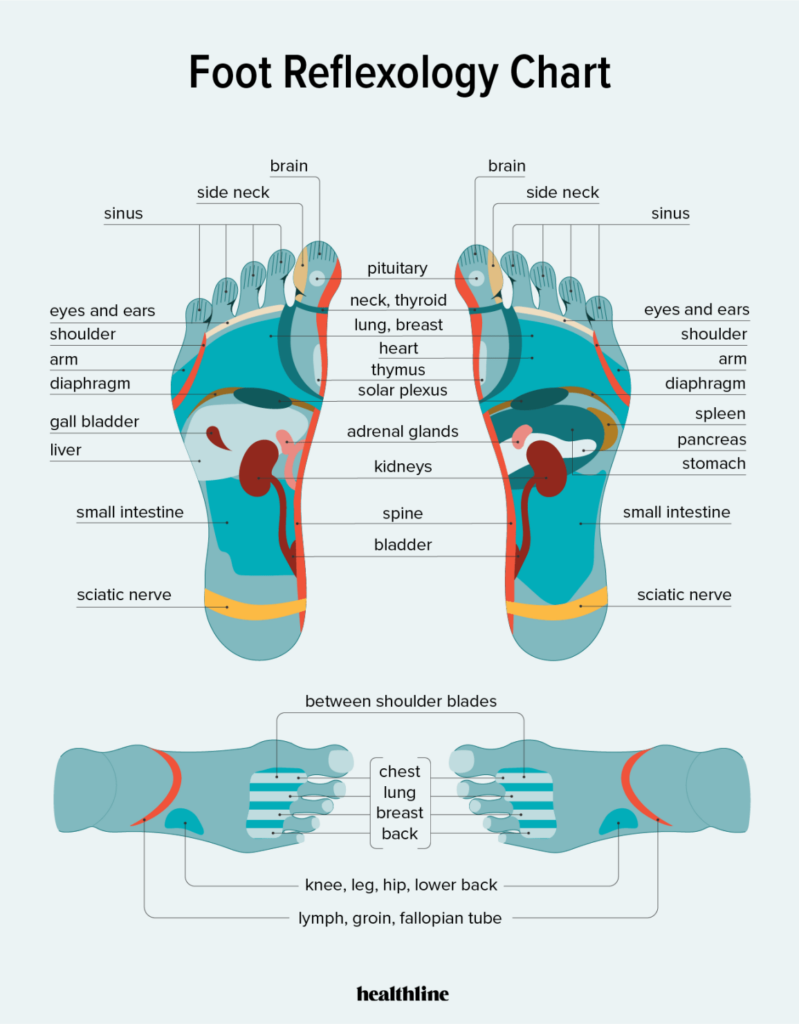
This image is property of i0.wp.com.
Emotional Benefits of Reflexology
In addition to the physical benefits, reflexology also offers a range of emotional benefits that can contribute to improved mental well-being.
Promotes relaxation and sleep
Reflexology is deeply relaxing and can help promote better sleep. By activating the body’s relaxation response, reflexology can reduce anxiety and tension, allowing for a more restful and rejuvenating sleep.
Reduces symptoms of depression and anxiety
Reflexology has been shown to be effective in reducing the symptoms of depression and anxiety. By releasing endorphins and promoting a sense of calm and relaxation, reflexology can help improve mood and decrease feelings of sadness and worry.
Enhances emotional well-being
Regular sessions of reflexology can contribute to overall emotional well-being and balance. By promoting relaxation, reducing stress, and improving circulation, reflexology can help create a sense of inner peace and harmony, leading to improved emotional well-being.
Mental Benefits of Reflexology
Reflexology not only has physical and emotional benefits but also offers various mental benefits that can enhance cognitive function and mental clarity.
Improves mental clarity
Reflexology can help improve mental clarity by reducing brain fog and promoting clarity of thought. By activating the body’s relaxation response, reflexology can help clear the mind and improve focus and concentration.
Reduces brain fog
Brain fog, characterized by difficulty concentrating, memory lapses, and confusion, can be improved through regular reflexology sessions. By stimulating the reflex points and promoting better circulation, reflexology helps oxygenate the brain, reducing brain fog and improving cognitive function.
Enhances concentration and focus
Reflexology can enhance concentration and focus by improving blood flow and oxygenation to the brain. By targeting reflex points that correspond to cognitive function, reflexology promotes mental alertness and improves the ability to concentrate and focus.
Boosts memory
Research has shown that reflexology can have a positive impact on memory and cognitive function. By stimulating reflex points that correspond to memory and recall, reflexology can help improve memory retention and retrieval.
This image is property of images.squarespace-cdn.com.
Specific Reflexology Techniques
There are various reflexology techniques that can be applied to different parts of the body, each with its own benefits and applications.
Hand Reflexology
Hand reflexology involves applying pressure to specific reflex points on the hands. It is often used as an alternative to foot reflexology or when foot reflexology may not be possible or preferred. Hand reflexology can provide the same benefits as foot reflexology and is particularly useful for conditions affecting the hands or wrists, such as arthritis or carpal tunnel syndrome.
Foot Reflexology
Foot reflexology is the most well-known and commonly practiced form of reflexology. It involves applying pressure to specific reflex points on the feet, corresponding to different parts of the body. Foot reflexology can help alleviate a wide range of conditions, including pain, stress, digestive issues, and hormonal imbalances.
Ear Reflexology
Ear reflexology, also known as auricular therapy, involves stimulating specific reflex points on the ears. The ears are believed to be a microcosm of the entire body, with each reflex point corresponding to specific organs, glands, or body systems. Ear reflexology can be used to address a variety of conditions and is particularly effective for managing pain and addiction.
Facial Reflexology
Facial reflexology is a gentle and non-invasive form of reflexology that involves applying pressure to specific reflex points on the face. It is believed to have a rejuvenating and balancing effect on the entire body and can help improve skin health, reduce stress, and promote overall well-being.
Head and Scalp Reflexology
Head and scalp reflexology involves massaging and applying pressure to specific reflex points on the head and scalp. It can help relieve tension, reduce headaches, promote relaxation, and improve overall scalp health.
Reflexology for Specific Conditions
Reflexology can be tailored to address specific conditions or concerns. Here are some examples of reflexology techniques for specific conditions:
Reflexology for headaches and migraines
Headaches and migraines can be relieved through foot or hand reflexology. By targeting reflex points that correspond to the head and neck, reflexology can help reduce pain, tension, and frequency of headaches.
Reflexology for digestive issues
Digestive issues such as bloating, constipation, or indigestion can be alleviated through foot or hand reflexology. By stimulating reflex points that correspond to the digestive system, reflexology can help promote better digestion, relieve discomfort, and improve nutrient absorption.
Reflexology for menstrual pain
Menstrual pain and discomfort can be reduced through foot reflexology. By targeting reflex points that correspond to the reproductive system, reflexology can help balance hormones, reduce cramps, and regulate menstrual cycles.
Reflexology for back pain
Back pain can be relieved through foot or hand reflexology. By targeting reflex points that correspond to the spine and back muscles, reflexology can help reduce inflammation, improve circulation, and relieve pain and tension.
Reflexology for insomnia
Insomnia and sleep issues can be addressed through foot or hand reflexology. By stimulating reflex points that correspond to relaxation and sleep, reflexology can help promote a restful and rejuvenating sleep.
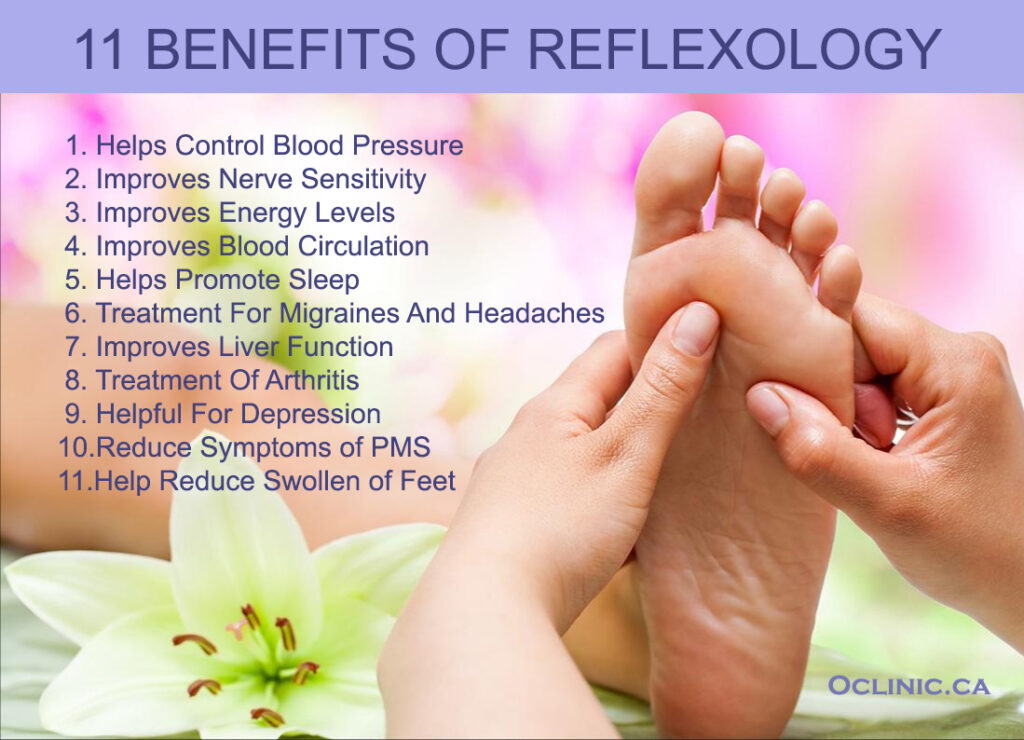
This image is property of 1.bp.blogspot.com.
Who Can Benefit from Reflexology?
Reflexology can benefit individuals of all ages and is safe for most people when performed by a qualified reflexologist. Here are some groups of people who can benefit from reflexology:
Adults
Adults can benefit from reflexology to reduce stress, improve overall well-being, and alleviate various health conditions. Reflexology can be particularly beneficial for individuals with chronic pain, sleep issues, or stress-related conditions.
Children
Reflexology can also be beneficial for children. It can help promote relaxation, improve concentration, and alleviate common childhood issues such as digestive complaints, sleep disturbances, and anxiety.
Pregnant women
Pregnant women can benefit from reflexology to relieve pregnancy-related discomfort, reduce stress, and promote a healthy pregnancy. However, it is important to consult with a qualified reflexologist who has experience in prenatal reflexology.
Elderly individuals
Reflexology can be beneficial for the elderly by promoting relaxation, improving circulation, and relieving common issues such as joint stiffness, poor digestion, and insomnia. It is important to choose a reflexologist who is experienced in working with elderly individuals.
Choosing a Qualified Reflexologist
When seeking reflexology therapy, it is important to choose a qualified reflexologist who can provide safe and effective treatment. Here are some factors to consider when choosing a reflexologist:
Certification and training
Ensure that the reflexologist has received proper certification and training from a reputable organization. Look for certifications from recognized reflexology associations or schools.
Experience and expertise
Ask about the reflexologist’s experience and expertise in treating specific conditions or concerns. A reflexologist with experience in working with your particular health issue can provide more targeted and effective treatment.
Client reviews and testimonials
Read client reviews and testimonials to get an idea of the reflexologist’s reputation and the quality of their service. Personal recommendations can also be helpful in finding a qualified reflexologist.
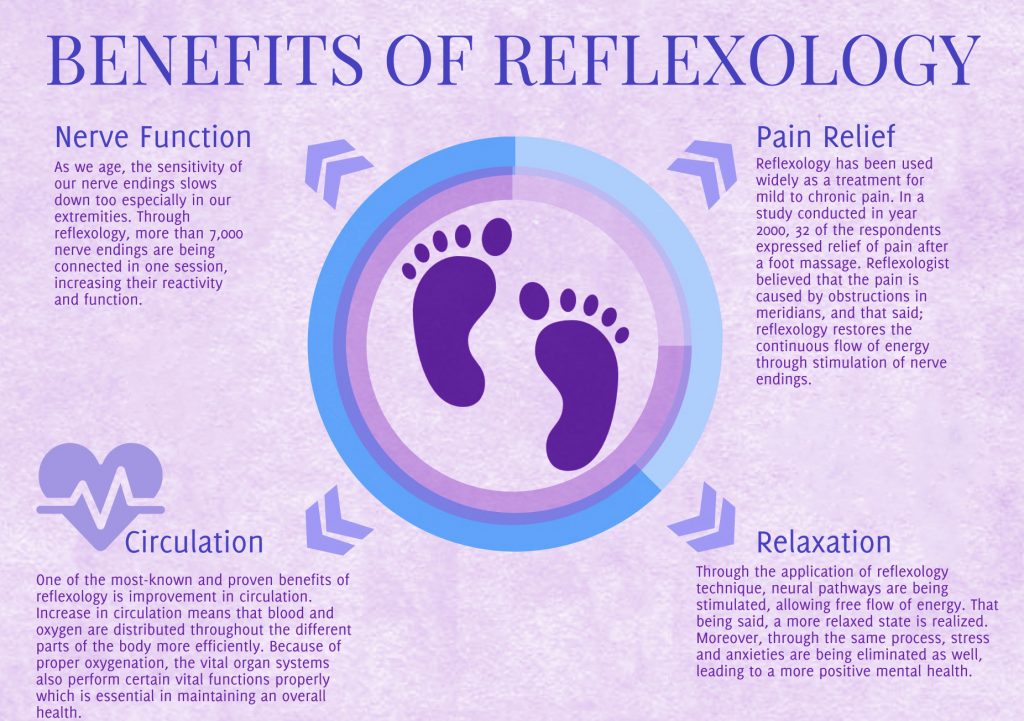
This image is property of solsticernr.ie.
Safety and Precautions
While reflexology is generally safe, there are some precautions to keep in mind:
Consultation with a healthcare professional
Always consult with a healthcare professional before starting reflexology therapy, especially if you have any underlying health conditions or are taking medications. They can provide guidance on whether reflexology is suitable for you and any necessary precautions.
Avoiding reflexology during certain medical conditions
Reflexology may not be recommended for individuals with certain medical conditions such as deep vein thrombosis, foot or leg ulcers, or infectious skin conditions. It is important to disclose any medical conditions or concerns to your reflexologist before starting treatment.
Possible side effects and risks
While rare, some individuals may experience temporary side effects such as increased sensitivity in the reflex areas or mild soreness. These usually subside quickly. If you experience any prolonged pain or discomfort, it is important to consult with your reflexologist.
Conclusion
Reflexology is a holistic therapy that offers a wide range of physical, emotional, and mental benefits. Through the stimulation of reflex points on the feet, hands, or ears, reflexology can promote relaxation, reduce pain, improve circulation, and enhance overall well-being. Whether you are seeking relief from a specific health condition, stress reduction, or simply a way to relax and rejuvenate, reflexology techniques can be a valuable addition to your wellness routine. Remember to choose a qualified reflexologist and always consult with a healthcare professional before starting any new therapy.
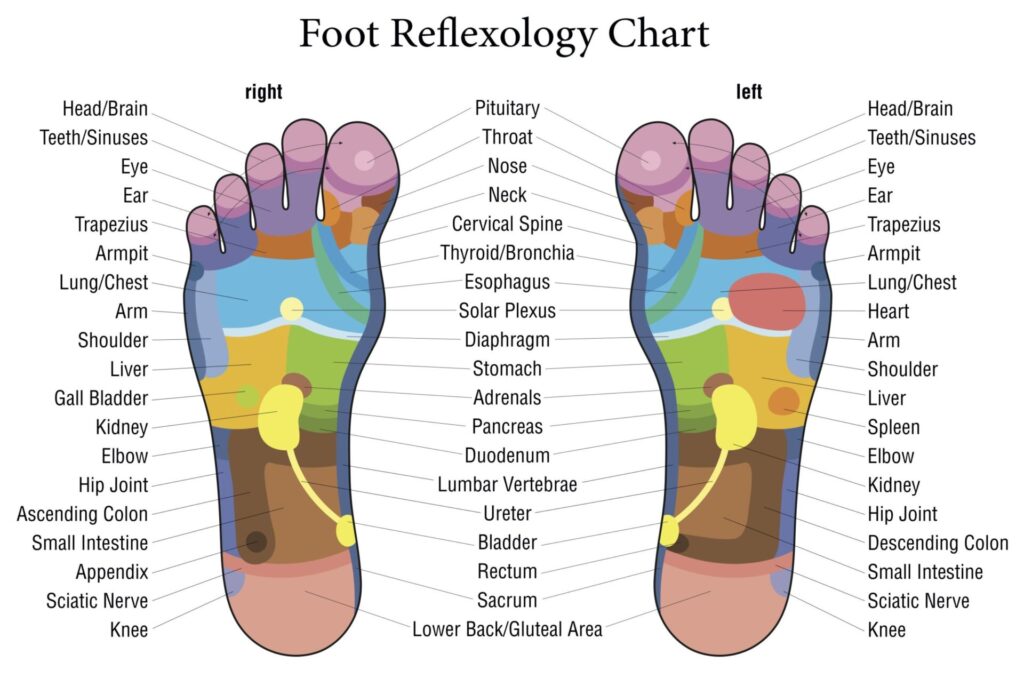
This image is property of www.thebeautyacademy.org.

